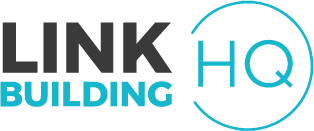An inbound link is a link from a third-party website that points to your site. Hence, the term Inbound link is used from the perspective of the site owner. Inbound links are also known as backlinks.
In order to be considered a backlink for search engines such as Google, a link must be clickable.
There are two parts that make up an inbound link:
- The link that points back to your page/site.
- The anchor text contains the link.
Note that inbound links are different from internal links. Internal links are links used on your own website or webpage to link to other content or pages on the same website.
The Benefits of Inbound Links
1. Better SEO and better rankings: Websites or web pages that receive a higher number of inbound links are likely to rank higher. Theoretically, each inbound link casts a vote of authority for your website. This basically means that other websites consider you an authority on a certain topic.
However, inbound links aren’t the only (or the most relevant) ranking factor for search engines.
2. Referral traffic: Another important benefit of inbound links is referral traffic. Whenever a backlink to your website is posted and people click on it, your website benefits from referral traffic. Obviously, the amount of referral traffic depends on the traffic volume the referring website receives in the first place.
3. Brand building: When you receive inbound links from high-authority, credible websites, you benefit from that transferred credibility, trust, and authority. Your own brand is perceived as stronger because authoritative websites are linking back to you.
4. Networking opportunity: If credible sites are linking back to yours, you have an opportunity to forge business relationships with them based on mutual benefit. This works even better when the backlink is coming from a website that is in a similar niche as yours.
Best Practices for Inbound Links
An inbound link that is considered high quality usually comes from an authoritative website and is linked naturally via relevant anchor text.
Some webmasters optimize anchor text for the very purpose of conning search engines.
Here’s what Google has to say about what it considers unnatural anchor text: “Links with optimized anchor text in articles or press releases distributed on other sites.”
Similarly, backlinks coming from questionable or non-authoritative sources will undergo search engine scrutiny and should hence, be avoided if possible.
Such questionable sources contain:
- Online forums.
- Blog comments.
- Guestbooks.
- Wikis.
- Social media profiles.
- Article directories.
- Q&A sites.
- Social bookmarking.
Links from such sites are usually artificial links. These links are almost always penalized by Google via various algorithm updates as well as manual action penalties.




